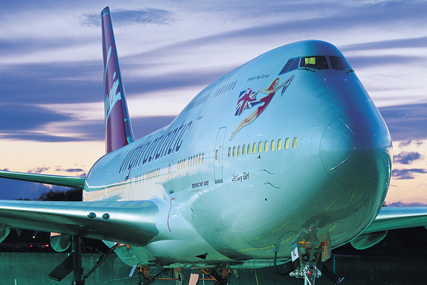
Virgin Atlantic has partnered with LanzaTech, a carbon fuel development company, to create what it claims to be the first aviation fuel with half the carbon footprint of standard fossil fuels used in the aviation industry.
Steve Ridgeway, chief executive of Virgin Atlantic, told Marketing that communication with consumers about the new fuel will be "wrapped up" within the airline's below-the-line activity, including corporate messaging and its frequent flyer programme.
He said: "It's all part of how we position the brand and communicate with our customers about being responsible and being efficient."
The low-carbon fuel uses Swedish biofuels technology to recycle waste gasses from industrial steel production, converting them into jet fuel.
Branson said the first Virgin Atlantic planes to use the fuel should be flying within the next 24 to 36-months.
Branson said that the price of the new fuel is "on a par" with the cost of current aviation fuel but should decrease "in time", potentially lowering the cost of air travel.
Branson criticised the Government citing global warming as a reason to increase taxes on airlines, while "not reflecting on the airlines that do something for the environment" and adding, "a sensible Government would start reducing taxes there as well."
Branson said such a reduction on fuel coupled with lower air taxes could have a "double-whammy effect" of being able to reduce the price of air travel.
The new fuel targets feeds into Virgin Atlantic's "Change is in the air" sustainability programme.
Star Alliance, the coalition of 27 airlines including Lufthansa, United and Air Canada, though not Virgin Atlantic, launched a campaign to promote global travel with a sustainability message in April this year.
The campaign focused on the "Biosphere Connections" project that partnered the Star Alliance with the United Nations Educational and Scientific Organisation (Unesco).
Follow on Twitter



.jpg)
.jpeg)
